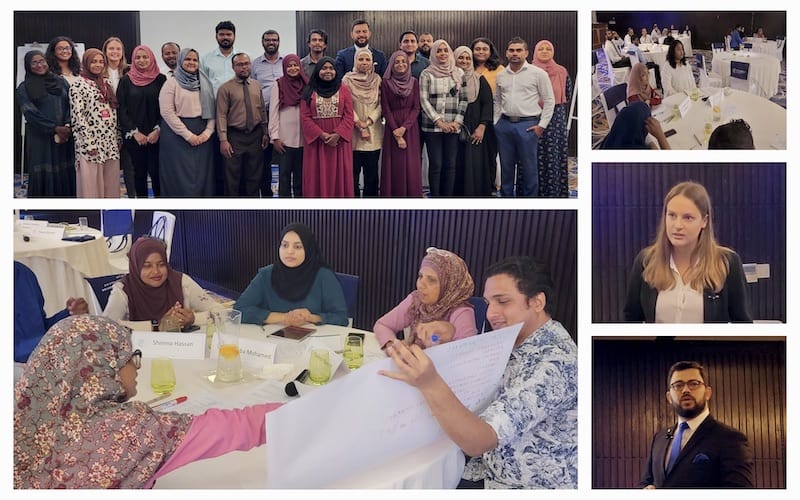A workshop for legal professionals offering pro bono legal services was held in Malé
In collaboration with the Bar Council of the Maldives, the Max Planck Foundation held a workshop for legal professionals on skills required for offering legal assistance to persons with disabilities (PwDs) and migrant workers. It was the second in a two-part workshop series aimed at supporting the capacity of lawyers to advance access to justice for vulnerable groups in the Maldives.
The first half of the workshop explored issues relating to access to justice for PwD. Concepts such as equality and the recognition of legal capacity of persons with disabilities were emphasised and the international and domestic legal framework explored. This foundation was then expanded upon through practical exercises focused on determining appropriate reasonable and procedural accommodations for PwDs and how to apply a human rights approach to supported decision-making. Presentations by Foundation Research Fellows were complemented by multi-disciplinary sessions by the Society for Health Education, which highlighted the health and social implications of limitations of access to justice for PwDs, and Mr Mohamed Mazin from the Maldives Association for Persons with Disabilities, who discussed the practical realities of PwDs in the Maldives.
The workshop then switched focus to the advancement of access to justice for migrant workers. The international legal system protecting migrant workers was briefly explored. Moreover, Mr Deenadhayalu Senthilkumar, from the Expatriate Friendship Club explained the lived reality faced by many migrant workers in the Maldives. Ms Eema Hussain from the Public Interest Law Centre provided invaluable insights into the domestic legal framework applicable to migrant workers in the Maldives while Mr Maisam Moosa, also from the Public Interest Law Centre, explained litigation strategies which have successfully advanced migrant worker rights in the Maldives. Mr Hamza Khaleel from Transparency Maldives explored practical skills needed to regularise migrants with irregular immigration status, to facilitate translation in legal matters and which forums may be approached to protect the rights of migrant workers.
The final afternoon of the workshop was dominated by an exercise which asked participants to brainstorm legal, social and advocacy strategies to advance the rights of PwDs and migrant workers described in assigned fact patterns. This led to a collaborative and lively discussion between groups of participants.
Throughout the workshop, participants were encouraged to reflect critically on the issues which make the protection of the rights of vulnerable groups difficult and consider what they might be able to do to address these challenges. Moreover, networking and opportunities for collaboration between participants on legal work were emphasised with the aim of advancing the provision of pro bono legal services.

